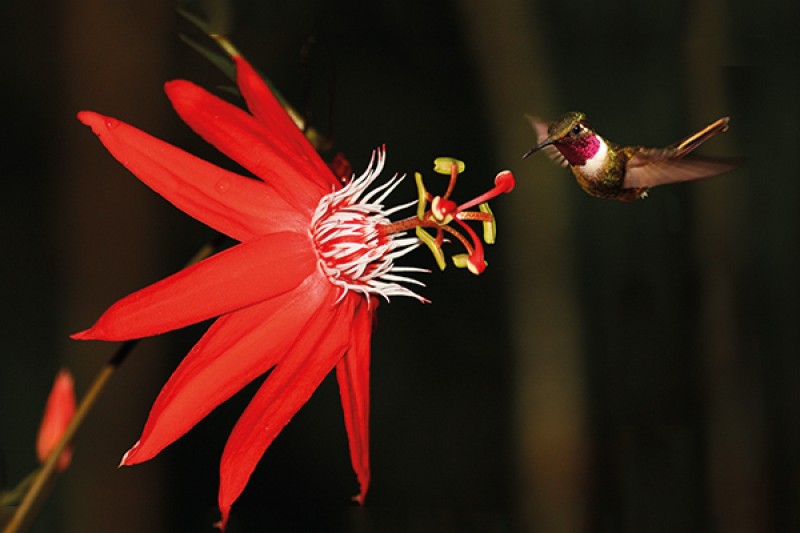Project details
This project will give conservation organisations knowledge and tools to conserve key endangered bird species by creating the first multispecies bird-predator model to predict predation impacts and the effectiveness of alternative management regimes to minimise these impacts. Such species are currently threatened by high predation pressure and require urgent evidence-informed conservation action.
Rationale:
Many bird species which use lowland landscapes, such as Eurasian Curlew (Numenius arquata) and Black-tailed Godwit (Limosa limosa), are experiencing significant population declines; for example, Curlew numbers in the UK declined by 48% between 1995 and 20201. Indeed, the scale of the decline in Curlew numbers has led to conservationists arguing that it should now be considered “the UK’s highest conservation priority bird species”, requiring urgent conservation action to prevent the extinction of this iconic species2. These ground-nesting birds face high levels of predation from mid-trophic level predators (termed ‘mesopredators’) such as Red Fox (Vulpes vulpes) and Carrion Crow (Corvus corone), which limits their ability to raise sufficient young to allow viable populations of these birds3. The efforts of conservation organisations to saving these species will be ineffective unless there is a marked improvement in (i) available knowledge of the drivers and impacts of predation, and (ii) the ability to test solutions to address the impacts of predation.
View full project description (PDF 205kb)
The closing date for applications is 31 May 2024
Supervisors
Professor Richard Stillman is an applied ecologist with an interest in predicting how environmental change and management influence animal populations. His research aims to advise policy makers, conservationists and industry on the best ways of reconciling the interests of wildlife with those of humans. Richard's main study species have been wading birds (e.g. oystercatcher, black-tailed godwit, redshank, dunlin) and wildfowl (e.g. Brent geese), and his research has addressed environmental conflicts when the coastal habitats of these species are also exploited by humans (e.g. for recreation, land reclamation, shellfishing, port, wind farm, tidal barrage and nuclear power development). He conducts research on foraging behaviour and decision making to search for general rules in the ways that individual animals interact with each other and their environment. Richard's applied research incorporates these general rules into computer individual-based models to predict how environmental change influences animal populations.
Dr. Emilie Hardouin joined Bournemouth University in May 2012 and is now an associate lecturer in conservation genetics. Her research focuses on the distribution and mechanisms of rapid adaptation of invasive species. She completed her PhD at the Max-Planck-Institute for Evolutionary Biology (MPI), Germany (2007-2011) after an MSc in Genetic from the University Paris 7, France.
During her PhD and Post-Doctoral fellowship (02/2011 - 05/2012) at the MPI, she was under the supervision of Prof. Dietahrd Tautz one of the world leaders in the field of evolutionary genetics and closely worked with internationally well-known evolutionary biologists. Her interest was in the mechanisms and the identification of genes involved in adaptive processes using different techniques such as microsatellite genome-wide screening (Hardouin 2011 PhD thesis) and complete mitochondrial genome sequencing (Hardouin et al. 2013). She studied the colonization history and dynamic of the house mouse from the Kerguelen Archipelago (Hardouin et al. 2010). Over the years, Dr. Hardouin used several molecular methods such as mitochondria sequencing (Hardouin et al.2010, Hardouin et al. 2013, Gabriel et al in prep), microsatellites genotyping (Hardouin et al. 2010, Linnenbrink et al. 2013, Hardouin et al. in prep), RFLP (Myles et al. 2011), cellular assay (Byrk et al. 2008) or even morphometrics (Renaud et al. 2013). She already has 6 publications in high impact factor journal such as Biology Letter or Molecular Ecology. Her research has been well received in all the 3 international workshops and 11 national and international conferences that she attended. Furthermore, she developed an international network of collaborators in top universities such as Cornell (USA), Lyon (France), Adelaide (Australia), Stellenbosch (South Africa), Montpellier (France), Max Planck Institute for Evolutionary Biology (Germany) and Kiel (Germany). She is also a referee for Molecular Ecology and the Protist.
Anita is a conservation ecologist who enthusiastically supports wildlife conservation by integrating her research and professional practice activities with mentoring student partners co-creating new knowledge. Anita has a core research interest in conserving the wildlife of cultural habitats such as heathlands, meadows and woods. Their rich biodiversity is a result of centuries of traditional farming-based societies affecting key ecological feed-back processes including grazing and pollination. Anita is intrigued by how wildlife responds to newer human land uses, for example, nature-based tourism and carbon capture.
Her research projects include collaboration with the National Trust and other wildlife conservation organisations forging an innovative landscape-scale conservation vision for the internationally important Purbeck Heaths. Students have integral roles in the project, co-creating long term monitoring of ecological change. Similarly Anita’s collaborations with the University of Leon and Pyrenean Institute of Ecology in Spain provide student co-researchers with different perspectives on wildlife conservation of mountain meadow ecosystems in the face of climate and cultural change.
Anita is also keen to encourage wider societal engagement with nature to enhance both nature conservation and human well-being. Her HEIF-funded NatureVounteers.uk website is co-created with students enriching society by connecting people with nature volunteering opportunities.
Dr Kevin Wood (Wildfowl and Wetlands Trust)
Dr Alex Nicol-Harper (Wildfowl and Wetlands Trust
Funding
A fully-funded Studentship includes a maintenance grant of £18,622 per year to contribute towards living expenses during the course of your research, as well as a fee waiver for 36 months. Associated costs, such as for fieldwork and conference attendance, will also be met under the Studentship.
Academic support
The Research Development Programme, developed by the Doctoral College in line with the Researcher Development Framework (Vitae).An added benefit is the opportunity to meet researchers from other academic schools at BU through the activities of the Doctoral College and benefit from their experiences, skills, and perspectives.
Full entry requirements
The BU PhD and MRes Studentships are open to UK, EU and International students.
Candidates for a PhD Studentship should demonstrate outstanding qualities and be motivated to complete a PhD in 4 years and must demonstrate:
- Outstanding academic potential as measured normally by either a 1st class honours degree (or equivalent Grade Point Average (GPA) or a Master’s degree with distinction or equivalent
- An IELTS (Academic) score of 6.5 minimum (with a minimum 6.0 in each component, or equivalent) for candidates for whom English is not their first language and this must be evidenced at point of application.
In addition to satisfying minimum entry criteria, BU will look closely at the qualities, skills and background of each candidate and what they can bring to their chosen research project in order to ensure successful completion.
Applicants will be asked to submit an online application form and a proposal (approximately 1500 words) outlining their understanding of the project for which they are applying, the approach they would envisage taking and what qualities they will bring to the research community.
Please note:
- current BU Doctoral students are not eligible to apply for a Studentship
- current MRes/MPhil students can apply, subject to satisfactory completion of their Research Degree prior to being able to take up the award
- PhD Studentships cannot be used to support BU staff to complete doctoral programmes.
International entry requirements
If English is not your first language, you will need to provide evidence that you can understand English to a satisfactory level. English language requirements for this course are normally:
IELTS (Academic) score of 6.5 (with a minimum 6.0 in each component) or equivalent.
View further information about our English language requirements.
A number of pre-sessional English and preparatory programmes are offered through our partner institution, Bournemouth University International College, and will get you ready for study at BU at the appropriate level.
You can also find further details of the international qualifications we accept, and what level of study they apply to, on our postgraduate entry requirements page.
How to apply
Click the green ‘Apply now’ button at the top of the page and complete the online application form. You can find further guidance about applying for a postgraduate research degree in our Postgraduate Research section.
The closing date for applications 31 May 2024.
Careers
A research degree can open new career opportunities in commercial research and development, consultancy, or could lead you to starting your own business. You may alternatively consider a career in academia. You may wish to undertake research to contribute to your knowledge of a specialist subject, or develop your employability by enhancing your skills in project management and analysis.


